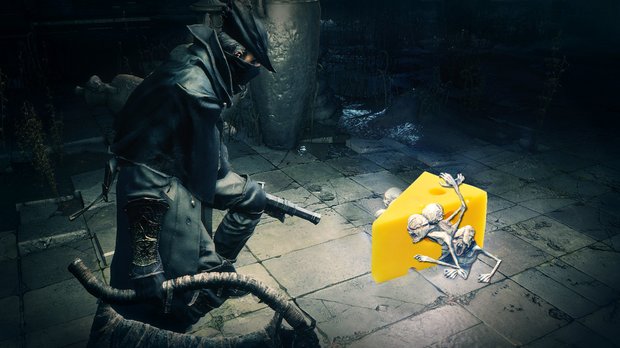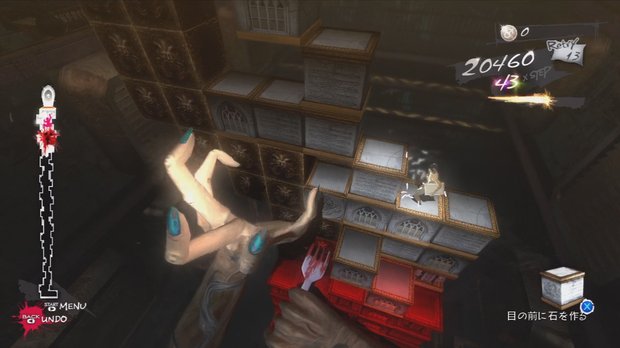Why I Love: Cheesing games
If you pay close attention in Bloodborne, you learn that a werewolf's ultimate weakness isn't quicksilver or wolfsbane - it's doors. Specifically, it's doorframes that are too big for their hulking bodies to fit through. You can stand on the other side and comfortably hack them to death without any concern for your life, like you're fighting a bag of potatoes with a target painted on the front. It's cheap, it doesn't agree with the laws of physics as we understand them, and I love it so much. Not just because it makes my life easier when I'm facing down three long-toothed rabies factories, but because it lets me work smarter, not harder. In fact, that's what I really love about cheesing just about any game: it makes me feel like I'm in-tune with the game itself, and understand it well enough to exploit mechanics I'm not supposed to know about.

Generally speaking, cheesing is seen as completing a challenge in an underhanded way that isn't in the spirit of the game, like leading an ultra-powerful boss off a cliff or shooting from a convenient hidey-hole where no one can reach you. In many circles these techniques are poorly regarded - cheesing is often said in the same breath as glitching or exploits, which are really just technical synonyms for cheating. But I don't see those things falling into the same category, because cheesing doesn't alter the basic framework of the game by prodding at frayed code. Cheesing a game comes from studying its many details and eccentricities, and using what you find to confront challenges in unexpected ways.
Take, for example, horror-romance-puzzle game Catherine. In between navigating the throes of romantic entanglement, your job is to rearrange the building blocks of a tower so you can create a path to the top. One boss in the game has the ability to change the blocks ahead of you into traps like spikes and black holes. It's an aggravating segment that you can fail with an errant twitch, unless you realize that you have the ability to undo your last block-pulling move, which also undoes the boss's spell. You can then hop to the next level and pull out another block before he makes a move, bypassing his cheap tactic with a cheap tactic of your own.

That gets you to the top on your own terms, and it wasn't by abusively duplicating items or manipulating some other mix-up in the code. By paying attention to how the 'undo' function affects the game in less obvious ways and making creative use of what you learn, you're able to utilize a mechanic in a way you may never have thought of otherwise. It's not the same as trying to beat a game out of contempt or superiority. It's a battle of the minds against a game you respect and love enough to learn it inside-out.
Of course, you have to be open to the idea of the game cheesing back - I had to bite my tongue when a massive, stampeding pig killed me through the floor in Bloodborne. But in the end that means you're interacting with the game on an even deeper level, which just makes playing it more personal and fun. So next time you snipe Sekrion from above in Destiny or goad Ceaseless Discharge into a bottomless pit in Dark Souls, banish the word 'cheating' from your mind. It's just you and the game, having a Gotcha moment.
Weekly digests, tales from the communities you love, and more
Former Associate Editor at GamesRadar, Ashley is now Lead Writer at Respawn working on Apex Legends. She's a lover of FPS titles, horror games, and stealth games. If you can see her, you're already dead.



